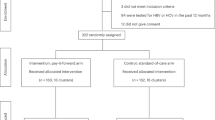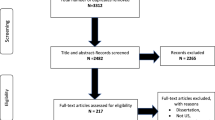Abstract
HIV status disclosure can reduce transmission risks and improve care engagement. Individuals may have strong feelings about HIV disclosure even prior to diagnosis. We assessed willingness to disclose a positive HIV status among pregnant women and their male partners awaiting routine HIV testing during antenatal care in Tanzania (n = 939). Logistic regression models were used to examine factors associated with willingness to disclose to one’s inner circle (partner/family member) and outer circle (friend/neighbor) in the event of an HIV diagnosis. Almost all (93%) were willing to disclose to at least one person; participants were more willing to disclose to their inner circle (91%) vs outer circle (52%). Individuals with some form of employment, more stigmatizing attitudes of social distancing of PLWH, greater anticipated HIV stigma, more perceived social support, and prior contact with someone living with HIV were more likely to disclose to their inner circles. Individuals who were older, male, and who had higher levels of perceived social support were more willing to disclose to their outer circle. These findings increase the understanding of the intra- and interpersonal factors that influence HIV disclosure decisions. Tailored pre- and post- HIV test counseling are needed to facilitate social support and overcome barriers to disclosure if they test positive for HIV.
Similar content being viewed by others
References
Atuyambe LM, Ssegujja E, Ssali S, Tumwine C, Nekesa N, Nannungi A, et al. HIV/AIDS status disclosure increases support, behavioural change and HIV prevention in the long term: a case for an Urban Clinic, Kampala, Uganda. BMC Health Serv Res. 2014;21(14):276.
Evangeli M, Wroe AL. HIV Disclosure anxiety: a systematic review and theoretical synthesis. AIDS Behav. 2017;21(1):1–11.
Knettel BA, Minja L, Chumba L, Oshosen M, Cichowitz C, Mmbaga BT, et al. Serostatus disclosure among a cohort of HIV-infected pregnant women enrolled in HIV care in Moshi. Tanzania: A mixed-methods study. SSM - Population Health; 2019. p. 100323.
Kiene SM, Dove M, Wanyenze RK. Depressive symptoms, disclosure, HIV-related stigma, and coping following HIV testing among outpatients in Uganda: a daily process analysis. AIDS Behav. 2018;22(5):1639–51.
Watt MH, Knippler ET, Knettel BA, Sikkema KJ, Ciya N, Myer L, et al. HIV disclosure among pregnant women initiating ART in cape town south Africa qualitative perspectives during the pregnancy and postpartum periods. AIDS Behav. 2018. https://doi.org/10.1007/s10461-018-2272-5.
Dessie G, Wagnew F, Mulugeta H, Amare D, Jara D, Leshargie CT, et al. The effect of disclosure on adherence to antiretroviral therapy among adults living with HIV in Ethiopia a systematic review and meta-analysis. BMC Infect Dis. 2019. https://doi.org/10.1186/s12879-019-4148-3.
Chaudoir SR, Fisher JD, Simoni JM. Understanding HIV disclosure: a review and application of the disclosure processes model. Soc Sci Med. 2011;72(10):1618–29.
Smith R, Rossetto K, Peterson BL. A meta-analysis of disclosure of one’s HIV-positive status, stigma and social support. AIDS Care. 2008;20(10):1266–75.
Serovich JM, Lim J-Y, Mason TL. A retest of two HIV disclosure theories: the women’s story. Health Soc Work. 2008;33(1):23–322.
Yonah G, Fredrick F, Leyna G. HIV serostatus disclosure among people living with HIV/AIDS in Mwanza, Tanzania. AIDS Res Ther. 2014;22(11):5.
Strebel A, Crawford M, Shefer T, Cloete A, Henda N, Kaufman M, et al. Social constructions of gender roles, gender-based violence and HIV/AIDS in two communities of the Western Cape, South Africa. SAHARA-J. 2006;3(3):516–28.
Shefer T, Crawford M, Strebel A, Simbayi LC, Dwadwa-Henda N, Cloete A, et al. Gender, power and resistance to change among two communities in the western cape, South Africa. Feminism Psychol. 2008;18(2):157–82.
Medley A, Garcia-Moreno C, McGill S, Maman S. Rates, barriers and outcomes of HIV serostatus disclosure among women in developing countries: implications for prevention of mother-to-child transmission programmes. Bull World Health Organ. 2004;82(4):299–307.
Farquhar C, Kiarie JN, Richardson BA, Kabura MN, John FN, Nduati RW, et al. Antenatal couple counseling increases uptake of interventions to prevent HIV-1 transmission. J Acquir Immune Defic Syndr. 2004;37(5):1620–6.
Maman S, Medley A, World Health Organization, Department of Gender W and H. Gender dimensions of HIV status disclosure to sexual partners: rates, barriers, and outcomes : a review paper. Geneva, Switzerland: Dept. of Gender and Women’s Health (GWH), Family and Community Health (FCH), World Health Organization; 2003.
Deribe K, Woldemichael K, Wondafrash M, Haile A, Amberbir A. Disclosure experience and associated factors among HIV positive men and women clinical service users in southwest Ethiopia. BMC Public Health. 2008;8(1):81.
Lemin AS, Rahman MM, Pangarah CA. Factors affecting intention to disclose HIV status among adult population in sarawak Malaysia. J Environ Public Health. 2020;2018:e2194791.
Conserve DF, Groves AK, Maman S. Effectiveness of interventions promoting HIV serostatus disclosure to sexual partners: a systematic review. AIDS Behav. 2015;19(10):1763–72.
van Lettow M, Cataldo F, Landes M, Kasende F, Nkhoma P, van Oosterhout JJ, et al. Impact of inter-partner HIV disclosure patterns in Malawi’s PMTCT program A mixedmethod study. PLoS One. 2019;14(7):e0219967.
World Health Organization. Consolidated guidelines on the use of antiretroviral drugs for treating and preventing HIV infection: Recommendations for a public health approach (Second edition) [Internet]. Geneva: WHO; 2016. Available from: https://apps.who.int/iris/bitstream/10665/208825/1/9789241549684_eng.pdf?ua=1
Yang H, Li X, Stanton B, Fang X, Lin D, Naar-King S. HIV-related knowledge, stigma, and willingness to disclose: a mediation analysis. AIDS Care. 2006;18(7):717–24.
Karim QA, Meyer-Weitz A, Mboyi L, Carrara H, Mahlase G, Frohlich JA, et al. The influence of AIDS stigma and discrimination and social cohesion on HIV testing and willingness to disclose HIV in rural KwaZulu-Natal. South Africa Global Public Health. 2008;3(4):351–65.
Tanzania Ministry of Health and Social Welfare. National guidelines for comprehensive care services for prevention of mother-to-child transmission of HIV and keeping mothers alive. 2013.
National AIDS Control Programme. National Guidelines for the Management of HIV and AIDS. The United Republic of Tanzania; 2017.
Kearns A. The National Road Map Strategic Plan to Accelerate Reduction of Maternal, New born and Child Deaths in Tanzania 2008–2015. Ministry of Health and Social Welfare. 2014;13.
Watt MH, Knippler ET, Minja L, Kisigo G, Knettel BA, Ngocho JS, et al. A counseling intervention to address HIV stigma at entry into antenatal care in Tanzania (Maisha): study protocol for a pilot randomized controlled trial. Trials. 2019. https://doi.org/10.1186/s13063-019-3933-z.
Visser MJ, Kershaw T, Makin JD, Forsyth BWC. Development of parallel scales to measure HIV-related stigma. AIDS Behav. 2008;12(5):759–71.
Turan JM, Bukusi EA, Onono M, Holzemer WL, Miller S, Cohen CR. HIV/AIDS stigma and refusal of HIV testing among pregnant women in rural kenya results from the MAMAS study. AIDS Behav. 2011;15(6):1111–20.
O’Brien K, Wortman CB, Kessler RC, Joseph JG. Social relationships of men at risk for AIDS. Soc Sci Med. 1993;36(9):1161–7.
Downey RG, King C. Missing data in Likert ratings: a comparison of replacement methods. J Gen Psychol. 1998;125(2):175–91.
Shrive FM, Stuart H, Quan H, Ghali WA. Dealing with missing data in a multi-question depression scale: a comparison of imputation methods. BMC Med Res Methodol. 2006;6(1):57.
Antelman G, Smith Fawzi MC, Kaaya S, Mbwambo J, Msamanga GI, Hunter DJ, et al. Predictors of HIV-1 serostatus disclosure: a prospective study among HIV-infected pregnant women in Dar es Salaam. Tanzania AIDS. 2001;15(14):1865–74.
Kalichman SC, DiMarco M, Austin J, Luke W, DiFonzo K. Stress, social support, and HIV-status disclosure to family and friends among HIV-positive men and women. J Behav Med. 2003;26(4):315–32.
Naigino R, Makumbi F, Mukose A, Buregyeya E, Arinaitwe J, Musinguzi J, et al. 2017 HIV status disclosure and associated outcomes among pregnant women enrolled in antiretroviral therapy in Uganda a mixed methods study. Reprod Health Aug 30:14.
Przybyla SM, Golin CE, Widman L, Grodensky CA, Earp JA, Suchindran C. Serostatus disclosure to sexual partners among people living with HIV: examining the roles of partner characteristics and stigma. AIDS Care. 2013;25(5):566–72.
Pakenham-Walsh N. Learning from one another to bridge the “know-do gap”. BMJ. 2004;329(7475):1189.
Fifield J, O’Sullivan L, Kelvin EA, Mantell JE, Exner T, Ramjee G, et al. Social support and violence-prone relationships as predictors of disclosure of hiv status among newly diagnosed HIV-positive South Africans. AIDS Behav. 2018. https://doi.org/10.1007/s10461-018-2136-z.
Brown MJ, Serovich JM, Laschober TC, Kimberly JA, Lescano CM. Mediating effects of depressive symptoms on perceived social support and HIV disclosure: assessing moderation by sex. AIDS Behav. 2019;23(3):636–48.
Hou W-L, Chen C-E, Liu H-Y, Lai Y-Y, Lee H-C, Lee N-Y, et al. Mediating effects of social support on depression and quality of life among patients with HIV infection in Taiwan. AIDS Care. 2014;26(8):996–1003.
Tesfaye T, Darega J, Belachew T, Abera A. HIV positive sero-status disclosure and its determinants among people living with HIV /AIDS following ART clinic in Jimma University Specialized Hospital, Southwest Ethiopia: a facility- based cross-sectional study. Arch Public Health. 2018. https://doi.org/10.1186/s13690-017-0251-3.
Pattyn E, Verhaeghe M, Bracke P. Attitudes toward community mental health care: the contact paradox revisited. Community Ment Health J. 2013;49(3):292–302.
Schiff M, McKay M, Bell C, Baptiste D, Madison S, Paikoff R. The role of personal contact with HIV-infected people in explaining urban, African American Preadolescents’ attitudes toward peers With HIV/AIDS. Am J Orthopsychiatry. 2003;73(1):101–8.
Paxton S. The paradox of public HIV disclosure. AIDS Care. 2002;14(4):559–67.
King R, Katuntu D, Lifshay J, Packel L, Batamwita R, Nakayiwa S, et al. Processes and outcomes of HIV serostatus disclosure to sexual partners among people living with HIV in Uganda. AIDS Behav. 2008;12(2):232–43.
Bhatia DS, Harrison AD, Kubeka M, Milford C, Kaida A, Bajunirwe F, et al. The role of relationship dynamics and gender inequalities as barriers to HIV-serostatus disclosure qualitative study among women and men living with HIV in Durban South Africa. Front Public Health. 2017. https://doi.org/10.3389/fpubh.2017.00188.
Harrison A, Colvin CJ, Kuo C, Swartz A, Lurie M. Sustained high HIV incidence in young women in Southern Africa: social, behavioral, and structural factors and emerging intervention approaches. Curr HIV/AIDS Rep. 2015;12(2):207–15.
Karim QA, Sibeko S, Baxter C. Preventing HIV infection in women: a global health imperative. Clin Infect Dis. 2010;50:S122–S129129.
Agbor IE, Etokidem A, Ugwa E. Factors responsible for disclosure of HIV seropositivity among residents of cross river state, Nigeria. Indian J Commun Med. 2017;42(3):138.
Damian DJ, Ngahatilwa D, Fadhili H, Mkiza JG, Mahande MJ, Ngocho JS, et al. Factors associated with HIV status disclosure to partners and its outcomes among HIV-positive women attending care and treatment clinics at Kilimanjaro region, Tanzania. PLoS ONE. 2019;14(3):e0211921.
Emlet CA. A comparison of HIV stigma and disclosure patterns between older and younger adults living with HIV/AIDS. AIDS Patient Care STDS. 2006;20(5):350–8.
Nokes KM, Holzemer WL, Corless IB, Bakken S, Brown M-A, Powell-Cope GM, et al. Health related quality of life in persons younger and older than 50 Who are living with HIV/AIDS. Res Aging. 2016. https://doi.org/10.1177/0164027500223004.
Emlet CA. Measuring stigma in older and younger adults with HIV/AIDS: an analysis of an HIV stigma scale and initial exploration of subscales. Research on Social Work Practice. 2016. https://doi.org/10.1177/1049731504273250.
Sankar A, Nevedal A, Neufeld S, Berry R, Luborsky M. What do we know about older adults and HIV? a review of social and behavioral literature. AIDS Care. 2011;23(10):1187–207.
Kiula ES, Damian DJ, Msuya SE. Predictors of HIV serostatus disclosure to partners among HIV-positive pregnant women in Morogoro. Tanzania BMC Public Health. 2013;13:433.
UNAIDS. 90–90–90: An ambitious treatment target to help end the AIDS epidemic [Internet]. Geneva: UNAIDS; 2014. www.unaids.org/sites/default/files/media_asset/90-90-90_en_0.pdf
Funding
This study was funded by grants from the Fogarty International Center (R21 TW 011053) and Duke Center for AIDS Research (P30 AI064518). We also acknowledge fellowship support received from the NIH Office of Behavioral and Social Science Research (OBSSR) and the Fogarty International Center (D43 TW009337).
Author information
Authors and Affiliations
Corresponding author
Ethics declarations
Conflict of interest
The authors declare that they have no conflict of interest.
Additional information
Publisher's Note
Springer Nature remains neutral with regard to jurisdictional claims in published maps and institutional affiliations.
Rights and permissions
About this article
Cite this article
Mwamba, R.N., Sao, S.S., Knettel, B.A. et al. The Disclosure Dilemma: Willingness to Disclose a Positive HIV Status Among Individuals Preparing for HIV Testing During Antenatal Care in Tanzania. AIDS Behav 25, 908–916 (2021). https://doi.org/10.1007/s10461-020-03058-y
Accepted:
Published:
Issue Date:
DOI: https://doi.org/10.1007/s10461-020-03058-y




